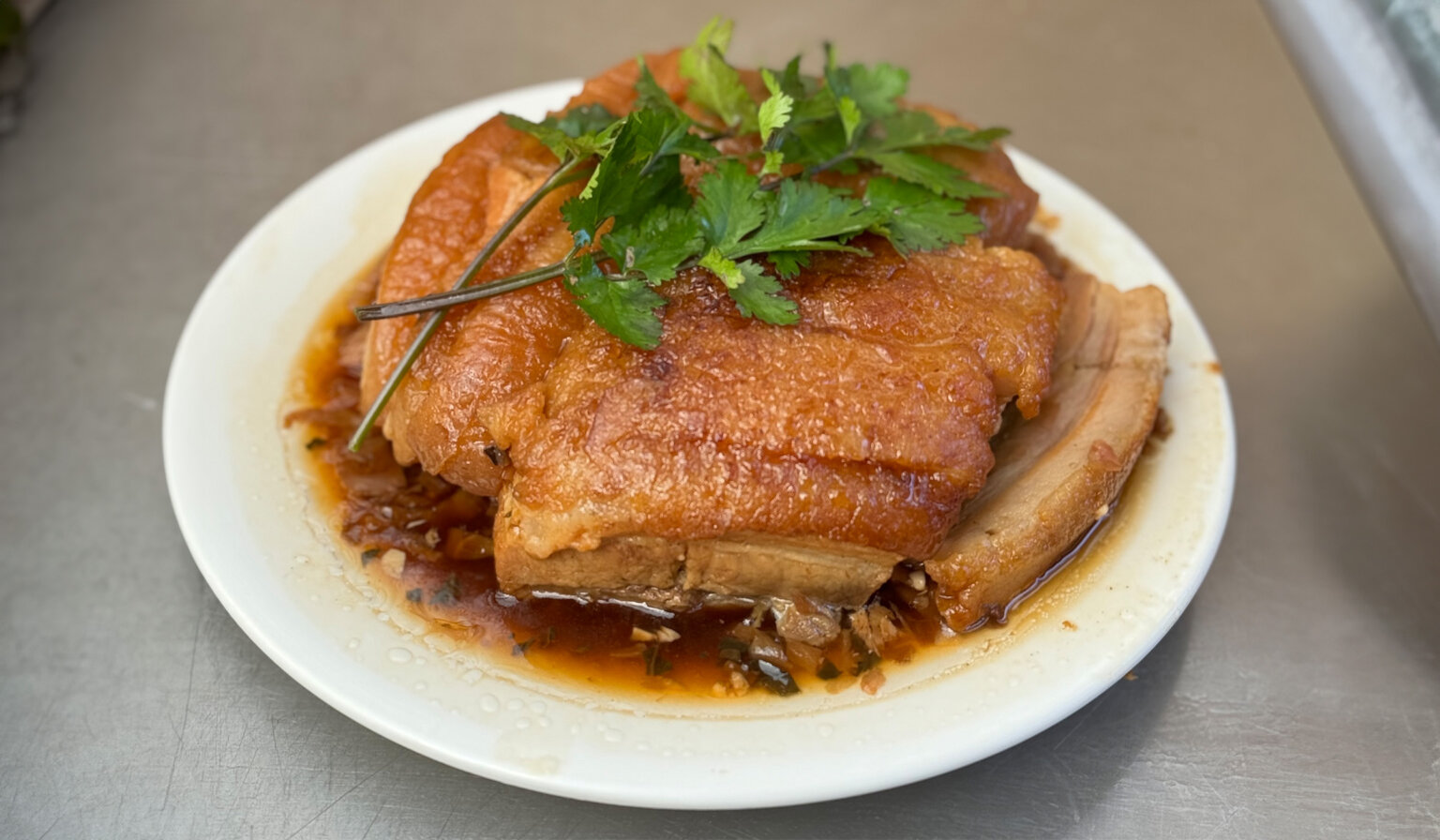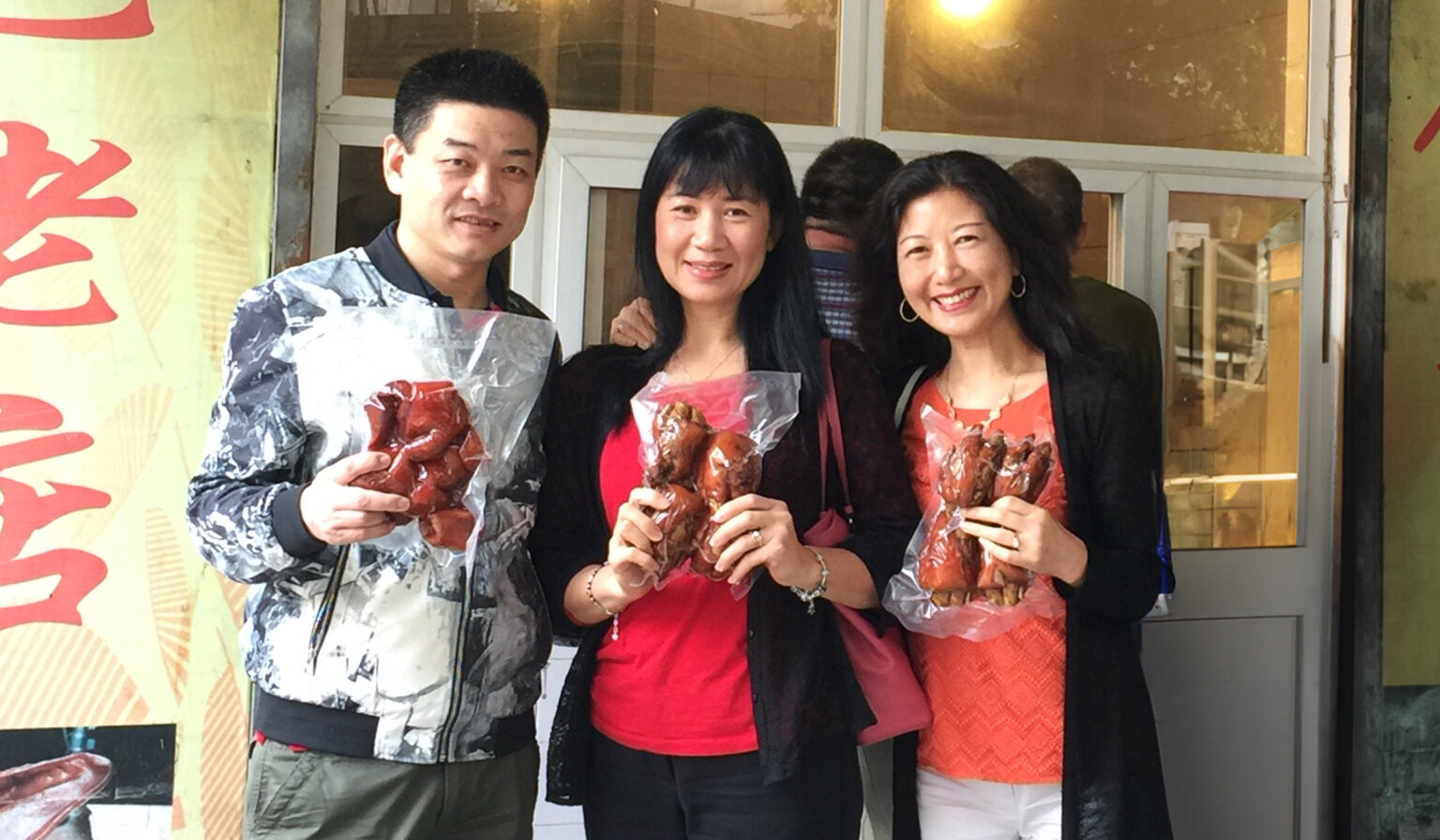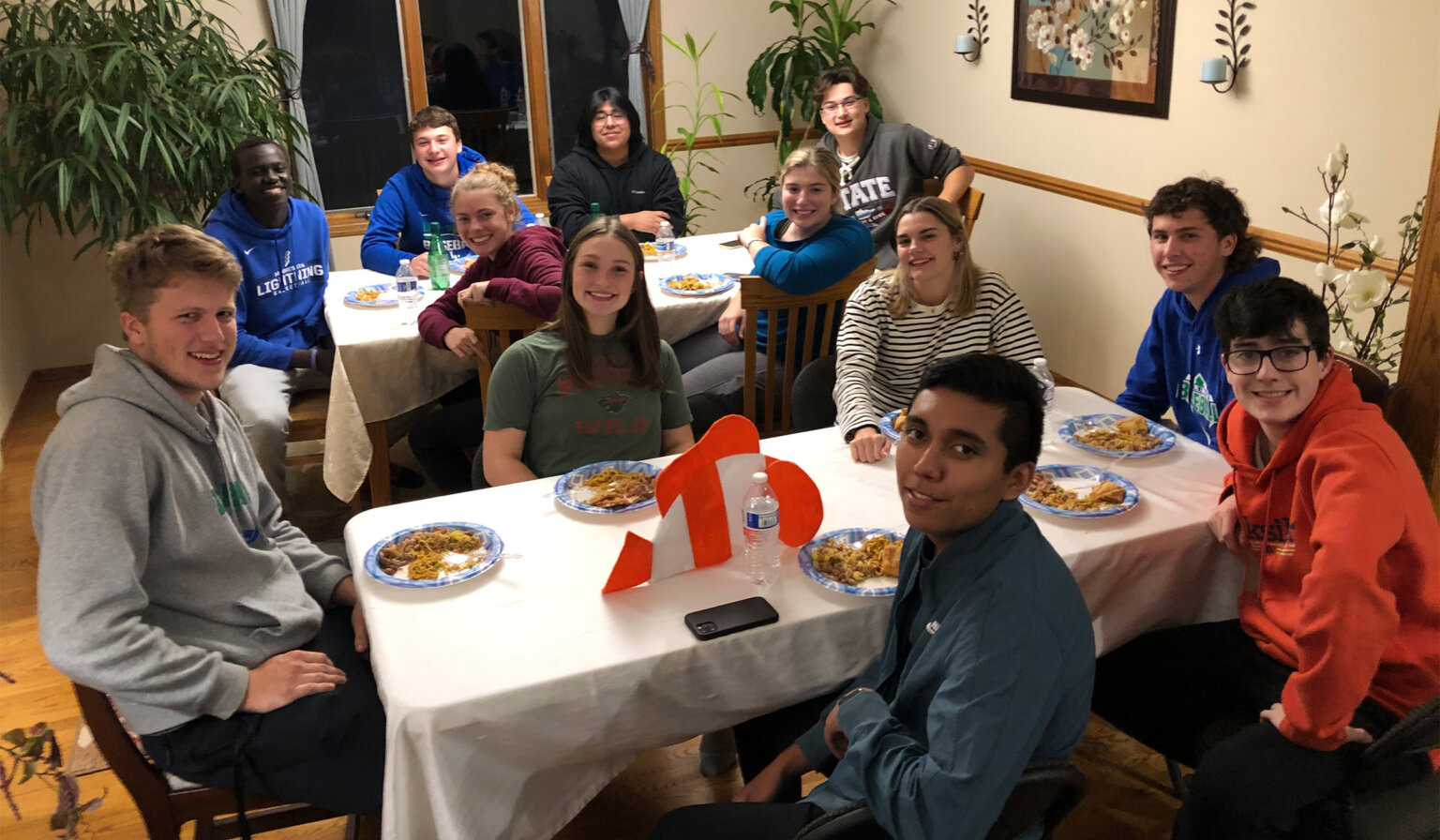Feng is not exaggerating when she says, “I love food. In my family, everyone loves food.” In her hometown, food was a family and community affair. “We lived in a very small town, so everyone knew each other. Everyone helped each other. My dad was a really good cook.” In fact, her late father was such a good and generous chef that he was the go-to volunteer caterer for big events in town, like weddings and funerals. Her mother and sisters, skilled home chefs in their own right, prepared daily meals for the family. Everyone had a role to play. Feng recalls, “My job was to burn the wood for the stove.”
With this strong work ethic and love of food and community, it’s no wonder that her seven siblings have owned six Chinese restaurants since immigrating to the United States. “We just love to cook and make people happy.”
Although Feng has a personal connection to Chinese culture and cuisine, she is sensitive to the needs of her customers in other countries as well, noting that they might prefer their pork cut in different ways. Religious considerations also come into play when analyzing prospective markets. She works with customers in China, Japan, South Korea and other countries in Asia and Latin America. Like her father before her, Feng takes great pride in her work and always goes above and beyond. She visits her customers around the world, always making sure to try the final product and other local foods when she travels. In turn, her customers develop an affinity for the Hormel Foods products and help inform the development of new options. “It is very rewarding to see our customers be successful by using our products, especially those that I have developed with customers from the beginning.”
Feng has passed down her cultural traditions to her children through family gatherings and visits back to China. She has also shared with them her appreciation for new cultures. Both her kids are away for school, but Feng continues to nurture them through her cooking. Just recently, she prepared a trunk full of home-cooked dishes for her son and his friends. Her daughter is starting to prepare her own Chinese food and carry on the family culinary traditions, but for now, Feng still marinates and cuts the meat for her in just the right way. Each time her kids come home, they can take a piece of home with them back to school. Feng says, “You feel good when people enjoy your food, and this is what I do to make people happy.”




